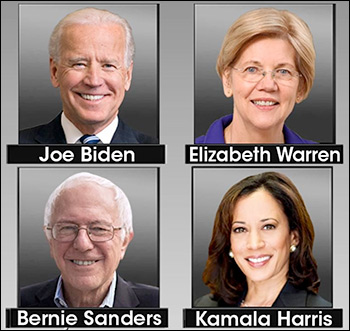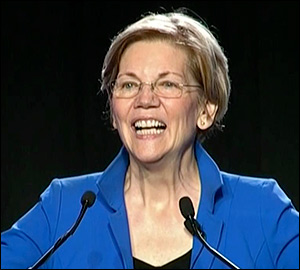By Jim Ellis
July 22, 2019 — The second quarter campaign financials are now public, and already candidates in both parties have raised millions of dollars in preparation for hard-hitting 2020 US Senate campaigns. And, the two most prolific fundraising candidates from April through June are actually running against each other.

Arizona Senate candidate and retired astronaut Mark Kelly (D) | Sen. Martha McSally (R)
Topping the campaign receipts category with $4.21 million raised for the quarter is retired astronaut Mark Kelly (D), who is an Arizona Senate candidate. Close behind, with $3.34 million obtained during the same three-month period, is Kelly’s general election opponent, appointed Sen. Martha McSally (R). Obviously, with each candidate already holding between $4.3 million (McSally) and $5.9 million (Kelly) in their political committee accounts, this Arizona campaign will almost assuredly set a statewide campaign spending record in 2020.
Of the 30 Senate incumbents presumed to be actively seeking re-election next year, 21 raised over $1 million in the quarter, and four obtained more than $2 million. Two others topped $3 million in receipts. In addition to Sen. McSally, Senate Majority Leader Mitch McConnell (R-KY) raised just over the $3 million mark.
Another senator, Cory Booker (D-NJ), reports raising no money during the quarter for his Senate campaign because he is running for president.
Overall, the Republican candidates’ aggregate figure was higher than the Democrats in the second quarter ($33.3 to $29.8 million) and for the entire cycle through June 30 ($105.7 to $79.2 million). This is likely because the Republicans have more incumbents on the ballot in the current cycle, 19 to 11, in addition to defending three of the four open seats.
The cash-on-hand category is, of course, highly important. Here, three Republicans lead the category. Texas Sen. John Cornyn, who faces the largest electorate in any 2020 Senate campaign, leads the cash category with just over $9 million in the bank. In no surprise, Senate Majority Leader McConnell has the second most, with $7.9 million. Third is South Carolina GOP Sen. Lindsey Graham with $6.5 million.
The Democrat holding the highest number of dollars is again challenger Mark Kelly in Arizona. Virginia Sen. Mark Warner, who surprisingly had a close call in 2014, is the Democratic incumbent holding the most cash: $5.4 million.

 July 19, 2019 — Two new surveys of the California Democratic electorate show the presidential race tightening in the state that possesses the largest delegation to the Democratic National Convention: 416 first-ballot delegates. To highlight the state’s size within the convention universe and its importance to the nomination process, the next largest state, Texas, has 228 first-ballot delegates.
July 19, 2019 — Two new surveys of the California Democratic electorate show the presidential race tightening in the state that possesses the largest delegation to the Democratic National Convention: 416 first-ballot delegates. To highlight the state’s size within the convention universe and its importance to the nomination process, the next largest state, Texas, has 228 first-ballot delegates.

 June 25, 2019 — There have been several important state polls recently released that provide us data about where the Democratic presidential candidates stand in relation to popular preference. But that is only half the story.
June 25, 2019 — There have been several important state polls recently released that provide us data about where the Democratic presidential candidates stand in relation to popular preference. But that is only half the story. June 17, 2019 — A new large-sample Golden State poll released from the University of California at Berkeley and the Los Angeles Times (June 4-10; 2,131 likely California Democratic primary voters from a pool of 4,435 registered voters) yields some surprising results. The three most unexpected findings first show a tight race among the four top contenders, Sen. Elizabeth Warren (D-MA) surging into second place, and home-state Sen. Kamala Harris only finishing fourth but not substantially behind.
June 17, 2019 — A new large-sample Golden State poll released from the University of California at Berkeley and the Los Angeles Times (June 4-10; 2,131 likely California Democratic primary voters from a pool of 4,435 registered voters) yields some surprising results. The three most unexpected findings first show a tight race among the four top contenders, Sen. Elizabeth Warren (D-MA) surging into second place, and home-state Sen. Kamala Harris only finishing fourth but not substantially behind.